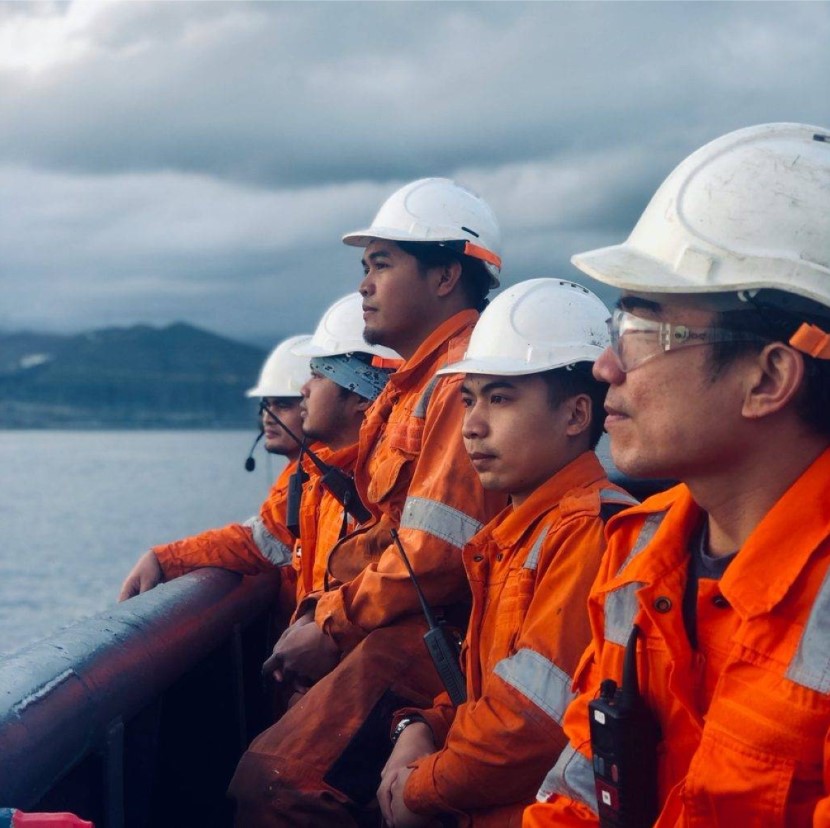Lawmakers approve Magna Carta of Filipino Seafarers

As posted by The Manila Times on December 20, 2023
LAWMAKERS have weaponized the Magna Carta of Filipino Seafarers in fighting ambulance chasing in their bid to shield seafarers from the illegal practice and to assure foreign employers of the country’s business-friendly environment.
After more than a decade, Congress is finally on the verge of approving the proposed magna carta, otherwise known as the Bill of Rights of Filipino Seafarers, after the Congressional Bicameral Conference Committee succeeded in hammering out a harmonized version of the highly contentious measure.
Last Wednesday, December 13, lawmakers from the House of Representatives and the Senate approved the final version of the bill that seeks to protect the rights of Filipino seafarers and strengthen the fight against the illegal practice of ambulance chasing in the country.
The bicameral-approved version of the seafarers’ magna carta incorporates practically all the seafarers’ rights as provided in the landmark Maritime Labor Convention 2006.
It seeks to protect seafarers from the rampant practice of some manning agencies of underpaying them by one or two pesos for every dollar due by using lower foreign exchange rates.
It also assures seafarers of speedy processing of their wages and benefits by stipulating a shorter period, about a month, during which manning agencies are mandated to settle what is due them.
This provision on speedy processing of their claims also “applies to the claims of a seafarer, or the seafarer’s successors-in-interest, arising from accidental death, natural death, or permanent disability benefits.”
The approved version also empowers the Maritime Industry Authority (Marina) to regulate training fees to protect seafarers from unreasonably expensive fees charged by training providers. It devotes a separate chapter detailing all the rights and benefits that seafarers in the inter-island trade should enjoy; it mandates all compliant Philippine-registered ships to accept cadets to address the acute shortage of cadetship berths; and it prohibits maritime schools from charging their cadets undergoing onboard training with tuition and miscellaneous fees, among other pro-seafarers provisions.
Anti-ambulance chasing provisions
The bicameral-approved version of the magna carta also provides clear and specific procedures to curb the illegal practice of ambulance chasing as well as guarantee the restitution of employers should courts decide favorably on their appeal whenever seafarers file for monetary claims.
Section 57, Execution of Judgment and Monetary Awards of the approved magna carta, provides procedures “to ensure the fair, speedy, equitable, and just disposition and execution of decisions granting monetary awards for salaries, death and disability claims, and other statutory benefits” and, at the same time, “to ensure the timely and full restitution of the monetary award, in case the decision is reversed on appeal or judicial review.”
It mandates maritime arbitrators under the National Conciliation and Mediation Board (NCMB) and labor arbiters of the National Labor Relations Commission (NLRC) in all their decisions, granting monetary awards to seafarers in a voluntary or mandatory arbitration or by the NLRC, to state the specific amounts for the payment of the following: salary or wage; any statutory monetary and welfare benefits; any undisputed amount; any disputed amount damages, including moral damages, exemplary damages, nominal damages and attorney’s fees; and other similar awards.
The bill provides that when a seafarer files a claim for any salary or wage (a), any statutory monetary and welfare benefits (b), and any undisputed amount (c), and a labor arbitrator or arbiter decides in favor of the seafarer, the decision “shall be immediately executory even pending appeal or judicial review.” Thus, the employer should immediately pay the seafarer’s claim even if the decision is on appeal.
However, on claims for any disputed amount (d) and damages, including moral damages, etc. (e), these shall only be awarded to the seafarer after a final favorable decision of the court.
Pending the employer’s appeal, a writ of execution on any disputed amount (d) and damages (e) shall only be issued if the seafarer posts a sufficient bond to ensure the full restitution of those amounts, and he shall maintain the bond until the final restitution of the appeal.
If the seafarer ultimately wins on appeal, the losing party (manning agency) shall immediately reimburse the total amount paid by the seafarer for the cost of the bond. However, if the seafarer loses, no such reimbursement shall be made.
The magna carta further defines the “undisputed amount as the uncontested or unchallenged part of the monetary award that the judgment obligor (employer) previously admitted or acknowledged in arbitration proceedings to be payable to the judgment oblige (seafarer).”
The disputed amount, on the other hand, means “the part of the monetary award which the judgment obligor previously opposed or challenged during arbitration proceedings to be not due to the judgment obligee.”
In addition to the bond, Section 58 Prohibition on Appearance and Fees, makes it difficult for ambulance chasers to continue their illegal practice detrimental to seafarers.
The charter states that lawyers and legal representatives of seafarers are required to “submit an Entry of Appearance with attached notarized certification and Affidavit of Undertaking,” declaring that they shall not charge the seafarer a fee more than 10 percent of the amount awarded to the seafarer, and they shall not lend money to seafarers or participate in the usurious lending practices.
Moreover, any excess from the 10 percent received by the legal representative of the seafarer shall be held in trust in favor of the seafarer.
Although lawmakers deleted the controversial escrow provision, those opposing it were dismayed and said putting in the bond is the same as including the escrow provision.
Given these explicit anti-ambulance chasing provisions, there is a good chance the Magna Carta of Seafarers, once enacted, will succeed in protecting the seafarer from opportunistic lawyers, which Republic Act 10706 or the “Seafarers Protection Act” failed to achieve.
